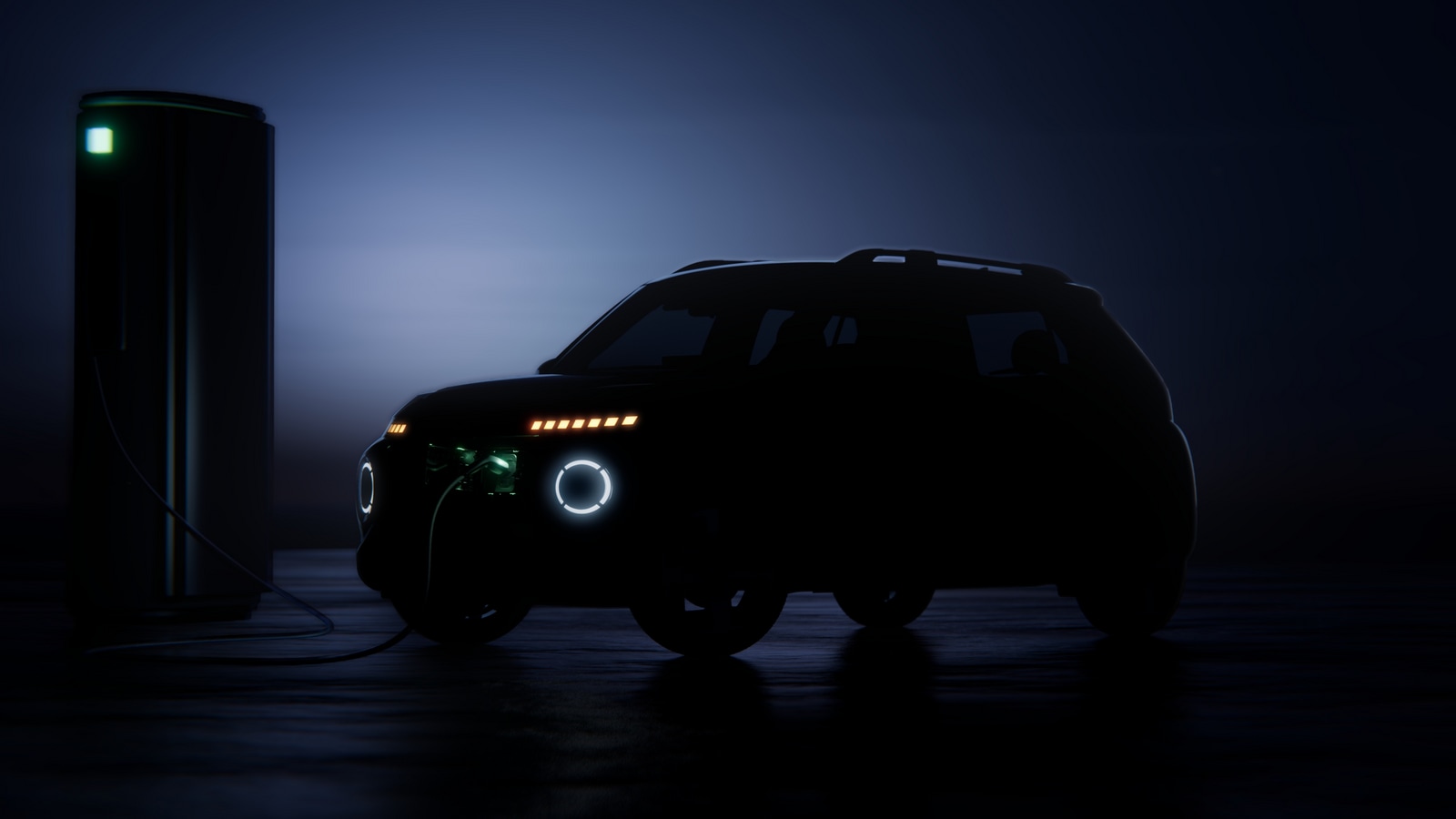Built on the Casper platform, Hyundai Inster features round headlights and modern pixelated LED DRLs, blending classic design with Hyundai’s latest EV
…
Hyundai has pulled back the curtain on the Inster, a new all-electric micro-SUV. The new product will debut later this month internationally at the Busan International Motor Show 2024 in Korea, which will be held between June 27 and July 7. The name Inster has been derived from “intimate” and “innovative”, and suggests a focus on urban driving with a modern twist, the company stated.
Built on the existing Casper platform, the Hyundai Inster borrows design cues like the round headlights from the ICE counterpart (Casper). However, it adds a modern touch with distinctive pixelated LED daytime running lights, reminiscent of Hyundai’s latest EVs.
(Check upcoming cars in India)
While full specifications are yet to be revealed, Hyundai promises the Inster will be competitive in its class. This includes a claimed driving range of 315km on a single charge, similar to the popular Tata Tiago EV in India.
A glimpse inside reveals a fully digital driver’s display, hinting at a tech-focused cabin. Hyundai also emphasises advanced safety features for the Inster, but details remain unknown.
Hyundai India’s EV commitments
While the arrival of the all-electric Inster micro-SUV in India remains unclear, Hyundai Motor India has confirmed its commitment to electrification. Their ambitious plan involves introducing six battery electric vehicles (BEVs) by 2030.
These BEVs will cater to a wide range of Indian car buyers. The lineup will span various segments and body styles, including SUVs, sedans, and compact SUVs. This strategy aims to target both the mass market and the mass premium market, offering electric options to a broader audience.
Also Read : Hyundai sets sights on India for strategic growth. Reveals production & EV plans
The first of these electric vehicles will be the Creta EV, details of which are yet to be revealed. The company aims to commence mass production of its first electric SUV model at the Chennai plant by the end of 2024.
To support this initiative, Hyundai Motor India plans to expand its EV charging infrastructure, targeting 485 charging stations by 2030. Hyundai’s commitment to six new BEVs by 2030 signifies a significant push towards electric mobility in India.
First Published Date: 11 Jun 2024, 15:04 PM IST

